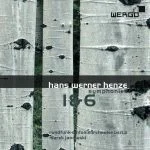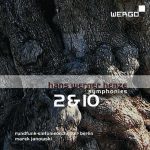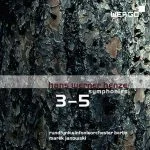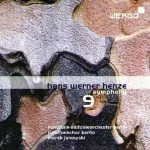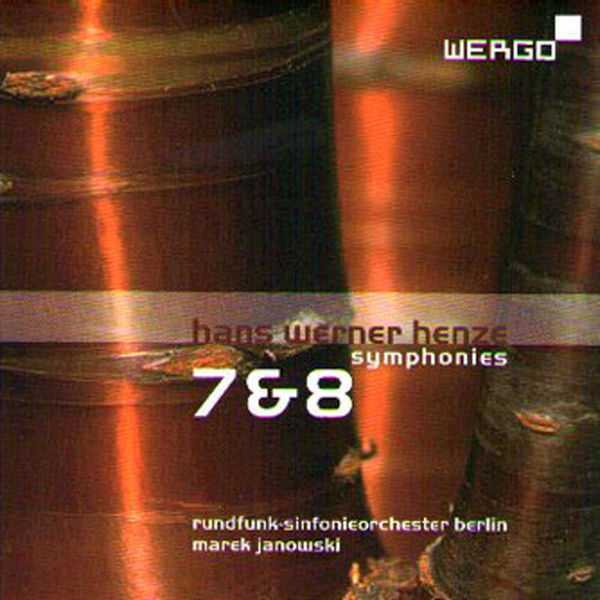
Composer: Hans Werner Henze
Orchestra: Berlin Radio Symphony Orchestra
Conductor: Marek Janowski
Format: FLAC (tracks)
Label: Wergo
Catalogue: WER67212
Release: 2008
Size: 254 MB
Recovery: +3%
Scan: cover
Symphony No. 7
01. I. Tanz
02. II. Ruhig Bewegt
03. III. Unablässig In Bewegung
04. IV. Ruhig, Verhalten
Symphony No. 8
05. I. Allegro
06. II. Allegramente con comodo tenerezza e ballabilità
07. III. Adagio
The symphony has been declared dead countless times over the past century. Nevertheless, Hans Werner Henze sought all his life to come to terms with symphonic form. On the occasion of his Symphony No. 8, he said: “I do not allow myself to be deterred from writing symphonies. I lay claim to this venue for addressing a large public in music, created especially for messages that go beyond the private. I won’t let anyone steal it from me, even if modern cultural philosophy has declared this form dead-and perhaps precisely because it has.” Whereas his No. 7 “is the one that comes closest to the model of the classical symphony”, and has a strong relation to Friedrich Hölderlin’s life and torment, his No. 8 is a symphony based on Shakespeare’s Midsummer Night’s Dream, “very light on its feet and rich in melody” (Henze).
The symphony is not a genre that immediately comes to mind when thinking of Henze, but by 2009 he had composed 10, a not inconsiderable achievement. Here, the Rundfunk-Sinfonieorchester Berlin, led by Marek Janowski, plays two of his most substantial (and traditional) symphonies: No. 7 and No. 8. No. 7, written in 1984, was commissioned by the Berlin Philharmonic. The composer has said that the symphony was for him “the opening of a door to something other than what I had done thus far,” and that change is apparent in the music, which has an expansiveness and expressive sweep that does indeed signal a new level of emotional transparency. The first movement has a kind of abstract Hindemithian rigor in its counterpoint, but the remaining three movements are unabashedly soulful and poignant, with an unfettered lyricism to which the composer had rarely given such free rein previously. The final movement, an orchestral setting of a Hölderlin poem, has a soaring Romantic eloquence that carries the listener along until the mood is shattered by a brashly powerful apocalyptic conclusion. The three movements of the Eighth Symphony are based on incidents and speeches from A Midsummer Night’s Dream, and the music reflects the lightness and magic of the subject matter. This is not a frothy lightness, though; the music still has Henze’s characteristic textural density and complexity, but without the pronounced angst. The second and third movements in particular are, respectively, humorously and tenderly expressive. The orchestral performances are polished and disciplined, but Janowski gives the music’s lyricism plenty of room to blossom. Wergo’s sound is clean and balanced, but doesn’t have the clarity and spaciousness to let details of orchestration emerge with the necessary distinction.
